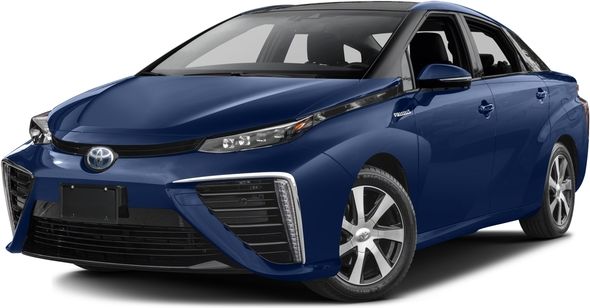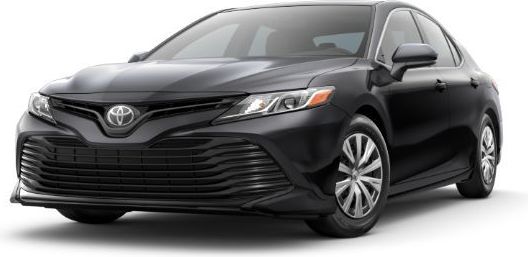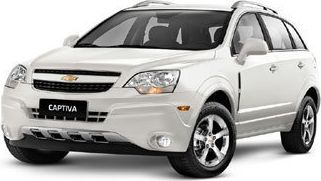
Every year, millions of car crashes occur worldwide, resulting in thousands of fatalities and injuries. While some accidents are unavoidable, many are caused by preventable factors that we often overlook. As drivers, it is our responsibility to understand the risks that contribute to car crashes and take necessary precautions to keep ourselves and others safe on the road.
In this blog post, we will delve into the top 7 causes of car crashes and provide insights on how to avoid them. By understanding these causes, we can make informed decisions while driving and potentially save lives. Let's dive in.
Distracted Driving
Distracted driving is the leading cause of car accidents, accounting for a significant number of crashes every year. It refers to any activity that diverts a driver's attention away from the road, such as texting, eating, or even changing the radio station. In today's society where technology is constantly at our fingertips, it is easy to get distracted while driving. A split second of taking your eyes off the road can have dire consequences.
To avoid distractions while driving, it is crucial to eliminate any potential distractions. If injured by a distracted driver, one should seek legal representation. For instance, if seriously hurt in a car crash in Kansas City, MO, one should contact experienced lawyers for car accidents in Kansas City to receive proper compensation. The experts will fight for the victim's rights and hold the responsible party accountable for their actions.
Driving Under the Influence
Driving under the influence (DUI) is another major cause of car crashes. It refers to operating a vehicle while under the influence of drugs or alcohol, impairing one's ability to drive safely. Despite strict laws and penalties for driving under the influence, it continues to be a prevalent issue on the roads. Not only does DUI put the driver at risk, but it also endangers the lives of other motorists and pedestrians.
To prevent DUI-related accidents, it is essential to plan ahead and not get behind the wheel if you have been drinking or using drugs. Always have a designated driver or use alternative modes of transportation such as taxis or ridesharing services. Remember, it's not worth risking your life and others for a few drinks.
Speeding
Speeding is a common cause of car crashes, especially on highways and busy roads. Exceeding the speed limit reduces the driver's reaction time, making it difficult to make sudden maneuvers or stop in case of an emergency. It also increases the impact force of a collision, resulting in more severe injuries and damage. Despite the potential risks, many drivers continue to speed, either intentionally or unintentionally.
To avoid speeding, it is crucial to follow posted speed limits and adjust your driving speed according to road conditions. Planning your trips in advance can also help reduce the need to speed to make up for lost time. Remember, arriving safely at your destination is always more important than getting there quickly.
Reckless Driving
Reckless driving refers to operating a vehicle without regard for the safety of others. It includes dangerous behaviors such as aggressive driving, weaving through traffic, and disobeying traffic laws. Reckless drivers not only put themselves at risk but also endanger everyone else on the road.
To avoid reckless driving, it is essential to be patient and follow traffic laws. Avoid responding to aggressive drivers, as it can escalate the situation. If you encounter a reckless driver, maintain a safe distance and report them to the authorities if necessary. Remember, your safety and the safety of others should always come first on the road.
Fatigued Driving
Driving while fatigued is a common cause of car crashes, especially for long-distance drivers and shift workers. It impairs one's ability to focus and react quickly, increasing the risk of collisions. Many people underestimate the effects of fatigue on driving and continue to drive despite feeling tired.
To prevent fatigued driving, it is crucial to get enough rest before embarking on a long trip. Take breaks every couple of hours and switch drivers if possible. Avoid driving during your body's natural sleep time, and if you feel drowsy, pull over to a safe location and take a nap. Remember, it is always better to arrive late than never at all.
Poor Weather Conditions
Poor weather conditions such as heavy rain, snow, or fog can significantly increase the risk of car crashes. These conditions reduce visibility and make roads slippery, making it more challenging to control a vehicle. It is crucial to adjust your driving speed and behavior according to the weather conditions to avoid accidents.
To drive safely in poor weather conditions, it is essential to check weather forecasts before heading out and plan accordingly. Drive slowly, leave enough distance between vehicles, and use your headlights to improve visibility. If the weather is severe, consider delaying or rescheduling your trip if possible.
Vehicle Malfunctions

Vehicle malfunctions such as brake failure, tire blowouts, or engine troubles can also lead to car crashes. These issues can arise due to lack of maintenance or manufacturing defects. While vehicle malfunctions are not always preventable, regular maintenance and check-ups can help detect potential problems before they become hazardous.
To avoid accidents caused by vehicle malfunctions, it is crucial to follow the manufacturer's recommended maintenance schedule and address any issues promptly. If you notice any strange noises or behaviors while driving, pull over to a safe location and have your car inspected by a professional.
Car crashes can have devastating consequences on individuals and their loved ones. By understanding the top causes of car crashes and taking necessary precautions, we can reduce the risk of accidents and keep ourselves and others safe on the road. Remember to always practice safe driving habits, follow traffic laws, and stay alert while behind the wheel. Let's work together to make our roads safer for everyone.




